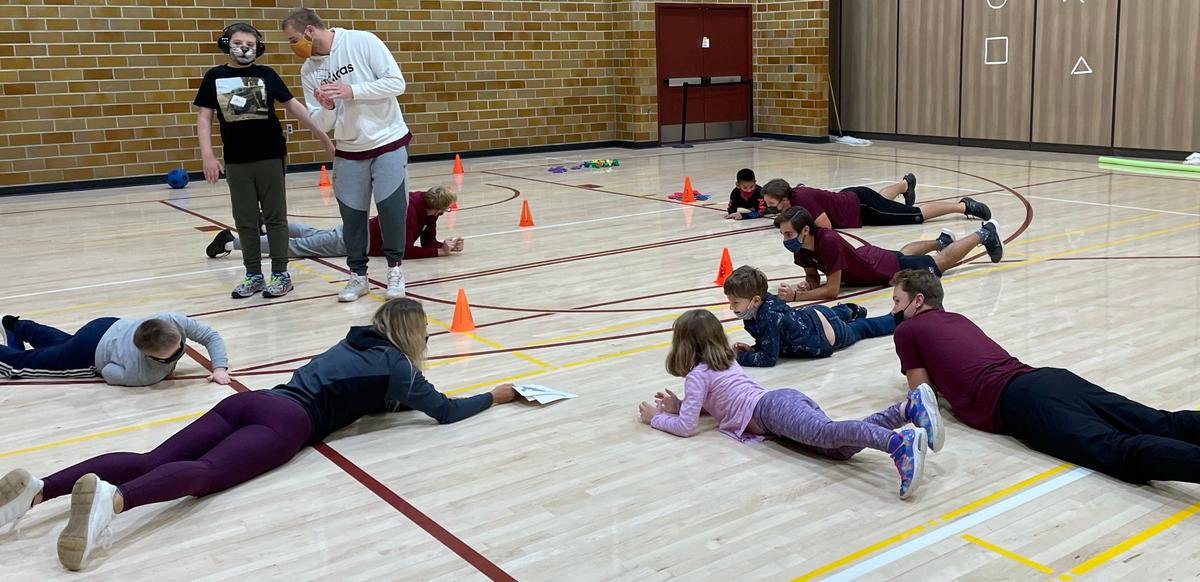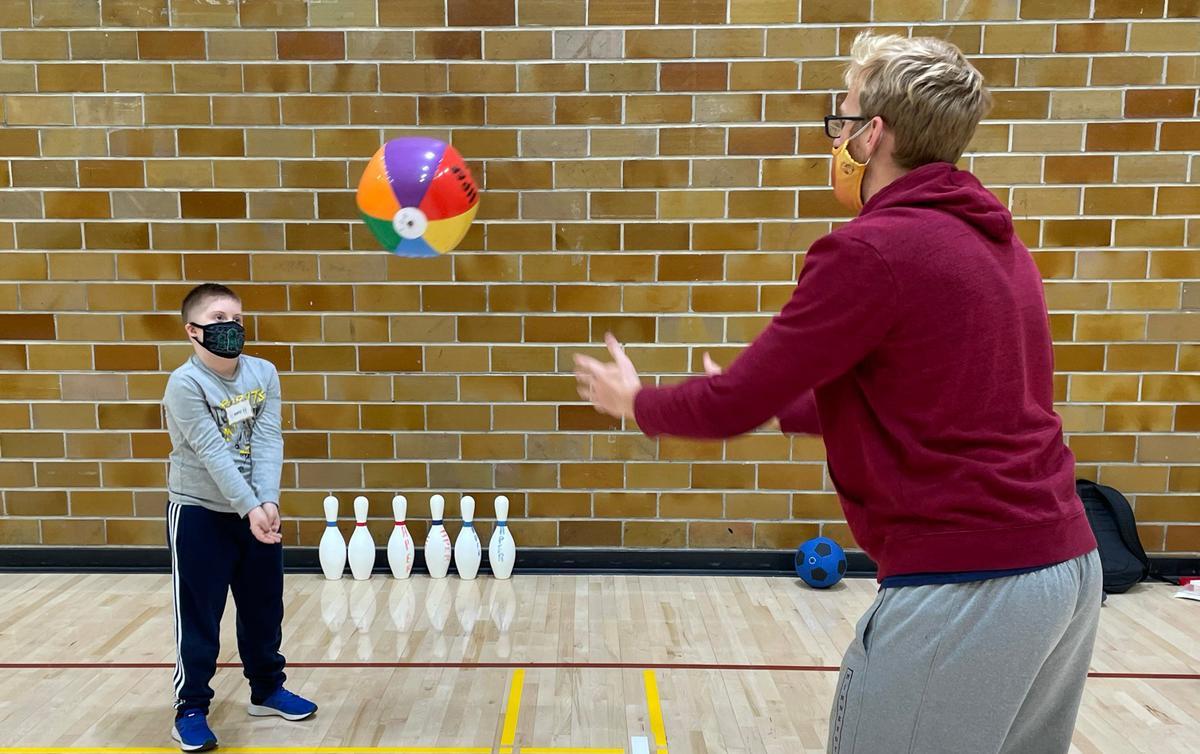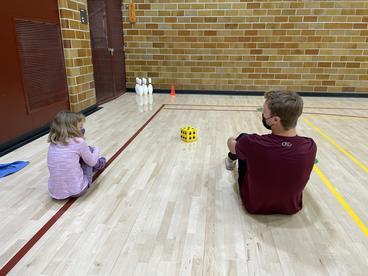
K-12 schools are federally mandated to provide adapted forms of physical education to serve all of their students. But many teachers aren’t trained to teach kids with special needs, according to Assistant Professor Daehyoung Lee.
Lee was hired in 2020 to build the UMD Developmental Adapted Physical Education (DAPE) minor program. “Schools strive to provide DAPE but it’s not always easy,” he says. In addition to a need for teacher training, he adds that “making accommodations and buying adaptable equipment can be expensive.”
Adapted physical activities allow kids with special needs to feel included. They also help them gain a wide variety of skills, from learning fundamental motor skills and locomotor manipulation to developing more flexibility and agility.
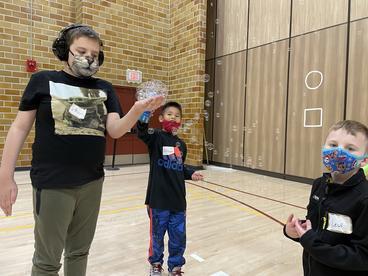
In addition, DAPE provides an opportunity for social and emotional learning about boundaries, personal space, social norms and regulating emotions, according to Lee.
Hands-on Learning
UMD DAPE minors, who Lee calls “bulldog instructors” have been working with area students this semester as part of a practicum class. The goal is to develop their knowledge of assessing students with special needs and also their ability to modify activities to make them more inclusive.
Lee provides the instruction and his UMD students collaborate with area DAPE teachers for the implementation. Once a week, bulldog instructors provide one-on-one guidance to students in a group setting on the UMD campus led by Lee. They also go out to Hermantown Community Schools and Lester Park Elementary for supervised teaching experiences on-site with classes and teachers.
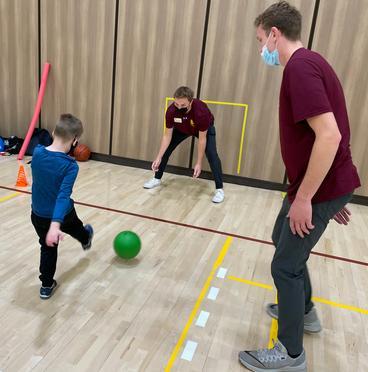
A Powerful Partnership
The fact that UMD added the DAPE minor is beneficial to schools in the region, says Lee. “Having a program near these schools ensures they’re able to hire certified DAPE teachers.”
He also suggests that the collaborative nature of this practicum is enriching the experience for everyone. “This partnership is making the DAPE program really special—and I believe also very sustainable,” says Lee.
A community engagement research grant from the University of Minnesota will enable Lee to assess the practicum’s success. He plans to measure the self-efficacy of students in the DAPE minor before and after completing the course. He’ll also interview special education coordinators and administrators as part of the study.
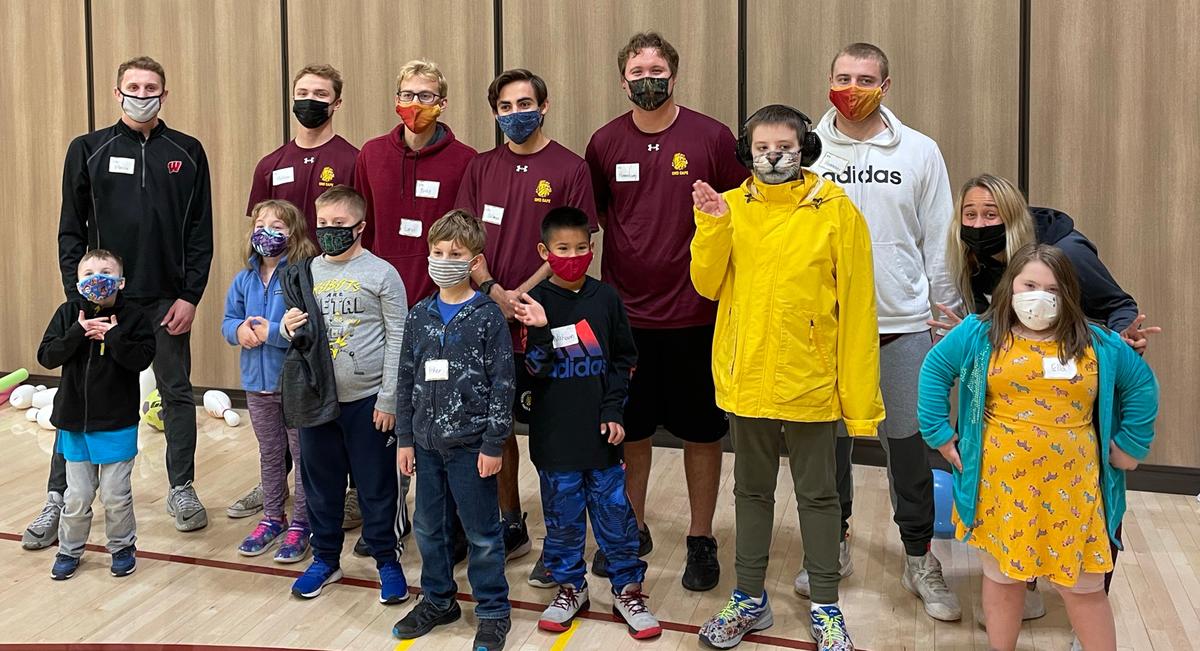
About the DAPE minor
